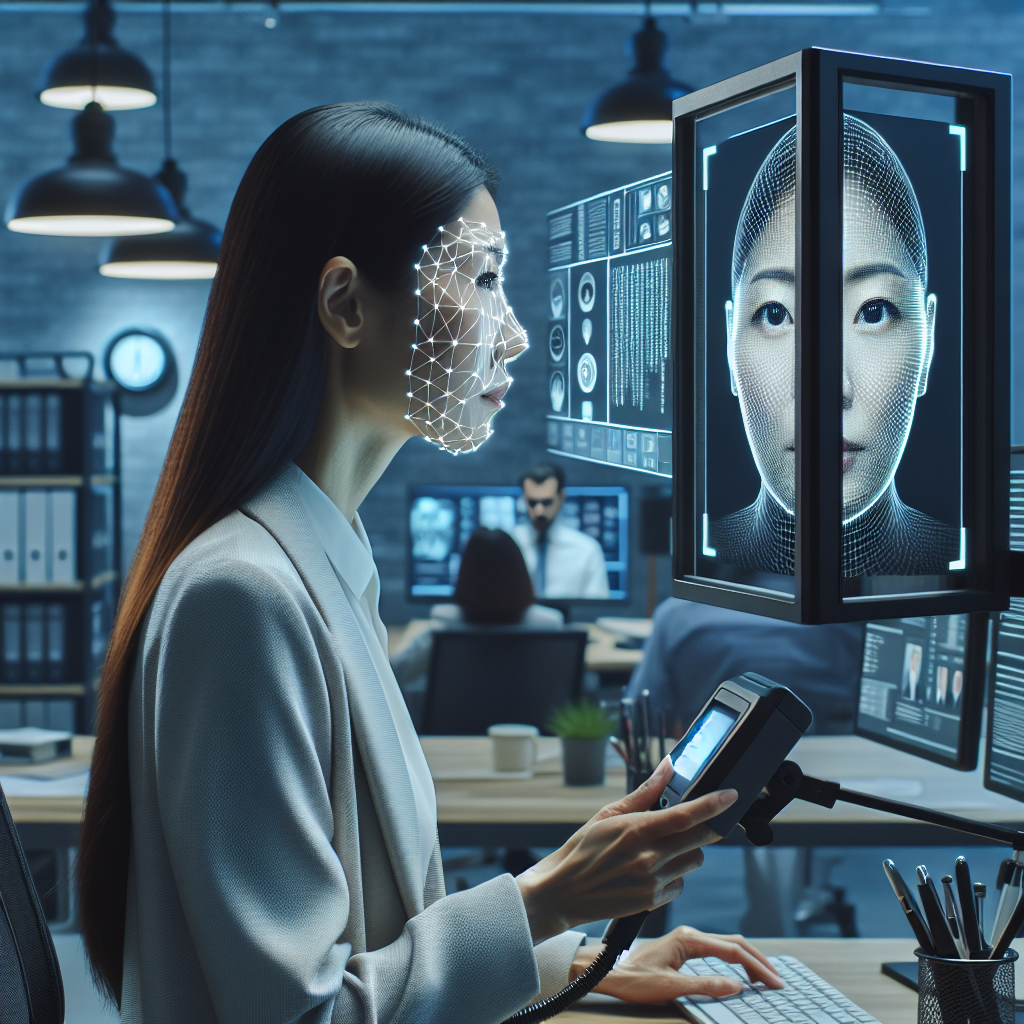Unveiling the Untold Advantages of Facial Recognition Technology. A Responsible and Ethical Approach.
- Megan Clark

- Aug 14, 2024
- 4 min read
Updated: Aug 20, 2024
In today's fast-paced world, technological advancements are reshaping various aspects of our lives, and one innovation that stands out is facial recognition technology. This cutting-edge tool has gained popularity across numerous industries, offering a wide range of benefits and applications. However, as we explore the captivating realm of facial recognition, it’s essential to consider the responsible and ethical use of this technology. Let’s delve into its untold advantages while understanding the importance of implementing it with care and integrity.

Enhancing Security Measures
Facial recognition technology plays a crucial role in enhancing security measures across a wide range of settings, from retail and airports, to banks and even smartphones. This technology not only provides an extra layer of security by accurately verifying an individual's identity based on their unique facial features but also contributes to public safety by identifying and tracking repeat violent offenders. By integrating facial recognition systems, organisations can bolster security protocols, prevent unauthorised access, and significantly enhance the safety of individuals.
Streamlining Identification Processes
One of the key advantages of facial recognition technology lies in its ability to streamline identification processes. Gone are the days of manually verifying identities through cumbersome procedures. With facial recognition, identification becomes seamless, efficient, and accurate. This is particularly beneficial in crowded spaces where quick identification is essential, such as airports, stadiums, and event venues.
Personalised User Experiences
Facial recognition technology can revolutionise the way businesses can offer personalised user experiences across various platforms. However, with great power comes great responsibility. The potential benefits, such as customised marketing strategies and tailored recommendations, are significant, but they must be balanced with ethical considerations and strict control over data usage.
One of the key elements in responsibly implementing facial recognition technology for personal user experience is ensuring that it is done with the express consent of individuals. Consent isn't just a legal requirement; it's a foundation for trust. Users need to know that their data is being used to enhance their experience, not to invade their privacy.
Efficient Access Control and Attendance Tracking
In workplaces, access control and manual attendance tracking can be both time-consuming and error-prone. Facial recognition technology can offer a solution by automating the identification of individuals as they enter a premise, simplifying the process. However, it’s crucial that this technology is implemented responsibly.
With the express consent of individuals, facial recognition can streamline access control and in some cases attendance management, reduce administrative burdens, and ensure accurate record-keeping. Implementation specialists play a key role in setting up these systems, ensuring that data is handled ethically and in a controlled manner. Additionally, strict protocols must be in place to ensure that attendance data is deleted when no longer needed, safeguarding privacy and maintaining trust.
Facial Recognition for Enhancing Public Safety
Facial recognition technology has the potential to significantly enhance public safety, particularly in retail environments and in protecting both the public and staff from repeat violent offenders. However, its implementation must be approached with caution and responsibility.
By integrating facial recognition systems with surveillance cameras, authorities can identify individuals in real-time and respond swiftly to potential threats or emergencies. This capability can be especially valuable in retail settings, where the safety of customers and staff is paramount. However, it's crucial that this technology is used ethically, and in a transparent and controlled manner.
Implementation specialists are essential in setting up these systems to ensure that they operate within strict ethical guidelines. They help to establish protocols that limit access to data, use it only for its intended purpose, and ensure that it is securely deleted when no longer needed. This responsible approach not only enhances public safety but also upholds the privacy and trust of all individuals involved.
Advancements in Healthcare
Facial recognition technology is transforming the healthcare sector, offering new ways to enhance patient care and management. From accurate patient identification to monitoring diagnosis and treatment, this technology has the potential to significantly improve the quality of care. However, it’s essential that these advancements are implemented with a strong focus on responsibility and ethics.
Healthcare providers can leverage facial recognition systems to streamline processes, reduce errors, and improve patient outcomes, but only with the express consent of patients. By adopting this technology ethically and with clear protocols in place, healthcare providers cannot only enhance patient care but also build and maintain trust, ensuring that privacy and patient rights are always prioritised.
Conclusion
Facial recognition technology represents a significant advancement with far-reaching implications across various industries. From boosting security to streamlining processes and enhancing user experiences, this innovative technology offers countless benefits. As we continue to explore its potential, facial recognition is set to reshape how we interact with technology and each other in the digital age.
However, with great power comes great responsibility. The key to unlocking the full potential of facial recognition lies in its responsible implementation. Many organisations are wisely turning to implementation specialists to ensure that these systems are set up with the highest ethical standards. These experts play a crucial role in controlling access and usage, establishing protocols for data retention, and ensuring that all data is deleted when no longer needed. By doing so, they help organisations offer personalised experiences that enhance customer satisfaction and build stronger brand loyalty, all while respecting user privacy and maintaining trust.
The future of facial recognition technology is bright, but it's one that must be embraced with care. By adopting this technology responsibly, we can unlock a world of possibilities that enhances security, improves processes, and personalises experiences—while always keeping ethics at the forefront.
Let’s step into the future with confidence, knowing that the power of facial recognition can be harnessed for good, with the right safeguards in place. The future is now, and together, we can make it a responsible and innovative one.